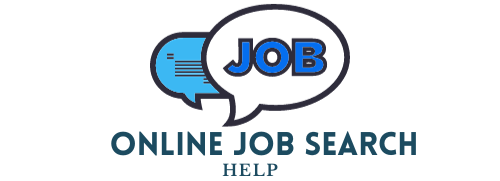Why Am I Not Getting Interviews? 5 Reasons Why
In today’s highly competitive job market, it can be very frustrating to not get interviews. It may feel like there is something wrong with you, or that your resume and cover letter are inadequate. You might start asking yourself, “Why am I not getting interviews?”. However, the reality is often much less dramatic than you might think.
There are many possible reasons why you may not be getting interviews, but here are five of the most common:
- You’re not using a recruiter. A recruiter can help you target your job search and connect you with the right opportunities.
- Your resume needs work. It should be clear and concise and should highlight your skills and experience.
- You’re not networking. Networking is a key way to meet potential employers and learn about job opportunities.
- You’re not following up. Make sure you follow up with potential employers after submitting your resume or attending an interview.
- You’re not prepared for interviews. Make sure you know what to expect in an interview and practice your answers to common questions.
If you’re struggling to find a job, these are five things to focus on in order to improve your chances of getting interviews.

Table of Contents
How To Get Interviews
Get In Touch With Someone Before Sending Your Resume
Unless you’re responding to an advertisement that specifically states “no phone calls,” make an effort to speak with the hiring manager before sending your resume.
Even if you don’t know the name of the person in charge of the search, if you know the name of the company conducting the search, you can conduct some research to locate the correct person.
Once you have the person’s phone number, keep your conversation brief. The purpose of your phone call is to express your excitement about the opportunity and to demonstrate that you can make a positive contribution to the team.
Always have an elevator pitch ready that summarizes your qualifications and the ways in which you can benefit the employer. Maintain the focus on the employer rather than on yourself.
Assuming you do not get the opportunity to speak with the hiring manager, learn the name of the recruiter who is in charge of hiring for the position, as well as how to properly spell his name.
Conclude Your Cover Letter With A Commitment To Take Action
Put something like this at the end of your letter: “I’ll get back to you in a few days to discuss the possibility of conducting an interview with you. In the meantime, please do not hesitate to contact me at the following number: ” If you say you’ll follow up, make sure you actually do so.
Follow Up On All Of The Resumes You Send Out
Follow-up should be completed within three to five business days. If you respond to a blind ad or if the ad specifies that no calls will be accepted, you can follow up by phone or by email.
When calling to follow up, say something like, “Hi, how are you?” “Hello, my name is and I’ve submitted my resume for the position you have available. I’m extremely interested in this opportunity, and I just wanted to get in touch with you to discuss how I can be of assistance to your company.”
If you are sending a follow-up email, keep your message short and to the point.
Be As Specific As Possible In Your Subsequent Follow-up Communications
If several weeks have passed since your initial follow-up and you have not heard back from the employer, make another phone call or send another email.
You could follow up to find out if an interview schedule has been established, or you could leave an alternate contact number if you will be traveling for the interview. Always remember to be courteous, professional, and respectful.
Maintain A Contact Log
It will be much easier for you to follow up on your applications if you keep a contact log of all the positions that you apply for. Among the information in your log should be a copy of the job advertisement (don’t just rely on the URL because job postings can be taken down), the file name of both the resume and cover letter you sent, the dates on which you communicated with hiring managers, and a summary of the information you gleaned from your conversations with them.
Avoid Being A Nuisance
Follow-ups that are repeated can be difficult. Maintaining restraint after the third or fourth follow-up contact is recommended unless you are confident in your ability to navigate the fine line between being persistent and becoming a pest. If your follow-up efforts don’t yield immediate results, don’t give up hope completely.
The time between the application closing date and the day interview invitations are issued can range from a few weeks to several months, depending on the employer, industry, specific job, and the number of responses.
Have Your Resume Reviewed By A Professional
Even though your resume serves as the primary point of contact between you and hiring managers, the likelihood of you benefiting from it is extremely slim unless it highlights the appropriate skills and strengths. Take advantage of writing services and complimentary resume evaluation. It’s a quick and simple way to ensure that you come across as the kind of person that companies want to hire. The sooner you take action, the sooner you will reap the benefits of your efforts.

How To Secure A Job Offer
Make Your Life’s Experiences Count
A critical component of your relativity process is this step. Your previous employment history will be inquired into by your prospective employer. This question will be asked no matter what job you are applying for.
Please provide a brief description of your educational background. Make a note of it, but don’t overemphasize its importance. Graduation certificates and grade point averages are readily visible on a resume, and your qualifications are not in doubt at this point. If the employer wishes to specifically address this issue, they will do so.
Briefly describe your educational background, then transition into discussing specific courses, assignments, or other professional work experiences that are similar to the position you are applying for.
Make Your Skill Sets Relevant To The Position You Are Applying For
Several variations of generic interview questions exist, all of which end up asking you to list your specific skills in some form or another.
Once again, the key is to keep your attention on relativity.
All of your Microsoft office skills, WordPress knowledge, social media aptitude, and strange ability to sing the alphabet backward can be put to good use in the lucrative new career you’ve been dreaming about.
All that is required is that you market it in a way that is consistent with the functions of the job. What skills do you bring to the table that will be useful in the new position? Prepare to respond to this question at the drop of a hat.
Make A Connection Between Your Accomplishments
Following your discussion of how your past experiences and skills will distinguish you as an excellent candidate and the only one who should be considered, it’s time to put the cherry on top of your accomplishments.
It’s time to show off your achievements! In any case, to a certain extent.
You must be able to demonstrate what you have been able to accomplish thus far in your career, whether it is educationally or professionally related to your field. And, perhaps even more importantly, you must once again make it relative.






